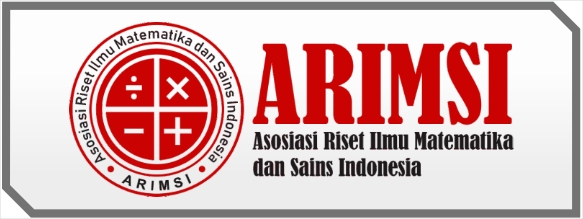Analisis Kemampuan Pemecahan Masalah Matematis Siswa Pada Materi Fungsi Komposisi
DOI:
https://doi.org/10.59581/konstanta.v2i1.1897Keywords:
Analysis, Ability, Problem Solving, Composition FunctionAbstract
Problem-solving is so important that it makes mathematics teaching a common goal. It is estimated that students who are capable of solving these problems can contribute to the economic growth of their country. Therefore, researchers are interested in analyzing students' ability to solve mathematical problems. Data is taken using the essay test instrument and analyzed using a descriptive quantitative approach. The subject of this study is a student of class XI SMAN 3 Sungai Penuh of 29 people. This research found that students' abilities in composition functions material were well assessed. However, in the problem-solving capabilities measured based on problem-solving indicators, there is still an obstacle to the first indicator, which is to display what is known and what is asked. But for the other three indicators, there are only a few obstacles even no obstacles at all. It is hoped that the obstacles experienced by students in this research can also be the background for further research.
References
Blessinger P. & Bliss T. (Eds.). In Open Education: International Perspectives in Higher Education (pp. 31-50). Cambridge, UK: Open Book.
De Witte, K., Titl, V., Holz, O., & Smet, M. (2019). Overview of education systems. In Financing Quality Education for All: The Funding Methods of Compulsory and Special Needs Education (pp. 25-40). Leuven (Belgium): Leuven University Press.
Firmansyah, M.A., & Syarifah, L.L. (2023). MATHEMATICAL PROBLEM SOLVING ABILITY IN VIEW OF LEARNING STYLES. Prima: Jurnal Pendidikan Matematika.
Fitria,N., Hidayani,N.,Hendriana,H., R. A. (2018). Analisis Kemampuan Pemecahan Masalah Matematik Siswa SMP dengan Materi Segitiga dan Segiempat. Edumatica, 08(April), 49–57. Retrieved from https://online-journal.unja.ac.id/index.php/edumatica
Hadlock, C. R. (2013). Underground Mathematics. The College Mathematics Journal, 44(5), 364-375.
Hannula, Pantziara, & Di Martino (2018). Affect and mathematical thinking: Ekploring developing, trends, and future directons. Developing Research in Mathematics Education Twenty Years of Communication, Cooperation and Collaboration in Europe.
Hamilton, L., Kaufman, J., Stecher, B., Naftel, S., Robbins, M., Thompson, L., & . . . Opfer, V. (2016). What Supports Do Teachers Need to Help Students Meet Common Core State Standards for Mathematics?: Findings from the American Teacher and American School Leader Panels. In What Supports Do Teachers Need to Help Students Meet Common Core State Standards for Mathematics?: Findings from the American Teacher and American School Leader Panels (pp. 1-8). RAND Corporation.
Hendriana, H., Rohaeti, E. E., & Sumarmo, U. (2017). Hard Skills dan Soft Skills Matematik siswa. Bandung: Refika Aditama.
Kamin, V. A., Andinny, Y., & Ramdani, I. (2021). Analisis Kemampuan Pemahaman Konsep Matematika Materi Fungsi Komposisi Dan Invers Kelas X. Diskusi Panel Nasional Pendidikan Matematika, 7(1).
Lalingkar, A., Chandrshekar, R., & Ramani, S. (2015). MONTO: A Machine-Readable Ontology for Teaching Word Problems in Mathematics. Journal of Educational Technology & Society, 18(3), 197-213.
Lane, A. (2016). Emancipation through Open Education: Rhetoric or Reality? In
Lestari, P., & Rosdiana, R. (2018). Kemampuan Pemecahan Masalah Matematis Siswa melalui Model Pembelajaran Learning Cycle 7E dan Problem Based Learning. Mosharafa: Jurnal Pendidikan Matematika, 7(3), 425-432
NCTM. (2000). Principle And Standards For School Matheatics. Reston. ISBN.
Ossiannilsson, E., Altinay, Z., & Altinay, F. (2016). Transformation of Teaching and Learning in Higher Education towards Open Learning Arenas: A Question of Quality. In B. P. (Eds.), Open Education: International Perspectives in Higher Education (pp. 159-178). Cambridge, UK: Open Book.
Sakban, S., Nurmal, I., & Ridwan, R. B. (2019). Manajemen sumber daya manusia. Journal Of Administration and Educational Management (ALIGNMENT), 2(1), 93-104.
Sun-Lin, H., & Chiou, G. (2019). Effects of Gamified Comparison on Sixth Graders' Algebra Word Problem Solving and Learning Attitude. Journal of Educational Technology & Society, 22(1), 120-130.
Wulandari, A., Nurcahya, A., & kadarisma, G. (2018). Hubungan Antara Self Confidence Dengan Kemampuan Pemecahan Masalah Matematis Siswa SMA. 1(April), 799–806. https://doi.org/10.22437/edumatica.v8i01.4623
Yuyun, A., Andi, T., Komarudin, K., & Suherman, S. (2021). Buku saku digital berbasis STEM: Pengembangan media pembelajaran terhadap kemampuan pemecahan masalah. Mosharafa: Jurnal Pendidikan Matematika, 10(3), 401-412..
Zulkifli. (2013). Education. In The Struggle of the Shi'is in Indonesia (pp. 141-162). ANU Press.













